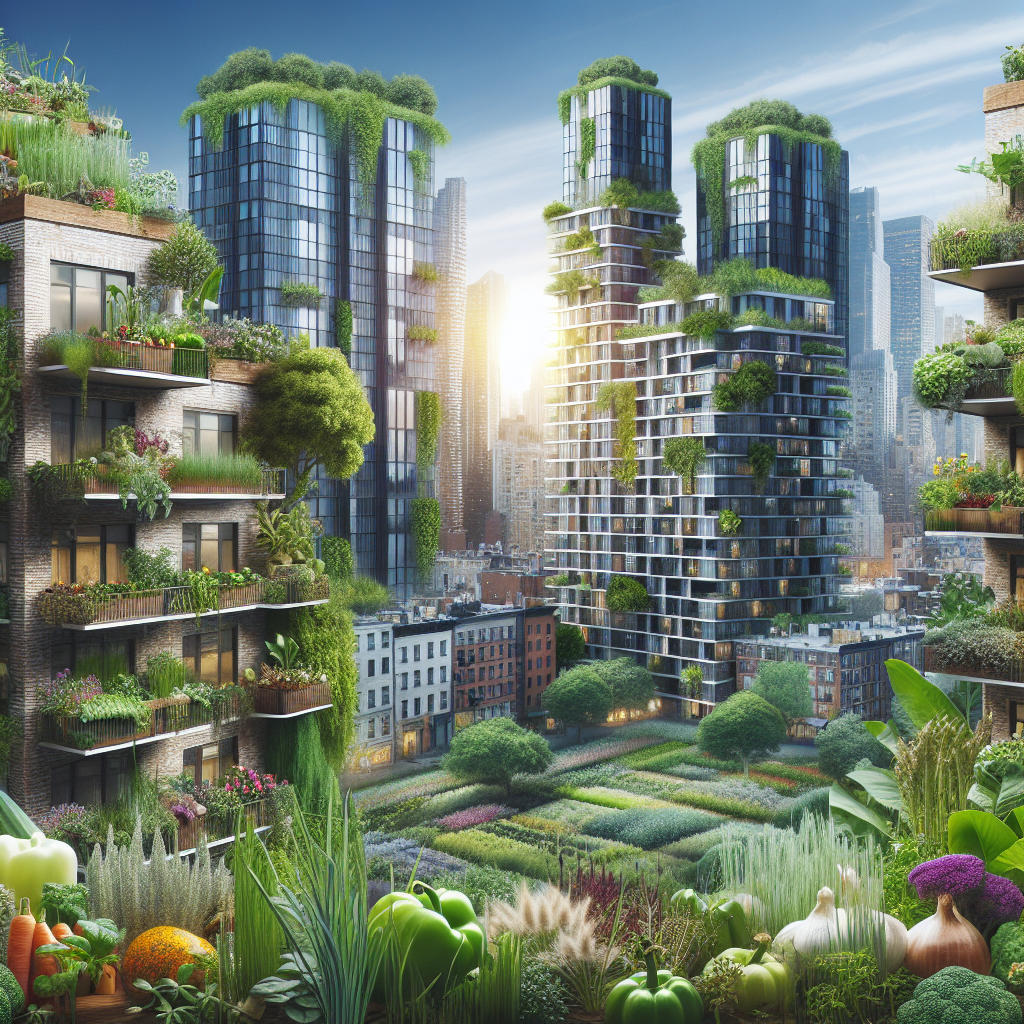Table of Contents
Urban gardening has become a popular trend in recent years as people seek to connect with nature, even in the midst of bustling city life. While traditional gardening may be limited by space constraints, many city dwellers are turning to rooftop and balcony gardening as a way to make the most of their available outdoor areas. Whether you have a small balcony or a spacious rooftop terrace, there are plenty of creative ways to transform these spaces into thriving gardens. In this article, we will explore the benefits of urban gardening and provide tips on how to maximize your rooftop or balcony garden.
From growing fresh herbs and vegetables to creating relaxing green spaces, urban gardening offers a host of benefits for both individuals and communities. By utilizing rooftop and balcony spaces, city dwellers can not only enjoy the beauty of nature but also contribute to environmental sustainability. With proper planning and care, even the smallest outdoor areas can be transformed into lush gardens that provide both aesthetic appeal and practical benefits. Read on to discover how you can make the most of your rooftop or balcony space through urban gardening.
The Benefits of Urban Gardening
Urban gardening offers a range of benefits for individuals and communities alike. Not only does it provide access to fresh, healthy produce, but it also promotes biodiversity and helps reduce carbon emissions in urban areas. By creating green spaces in otherwise concrete jungles, rooftop and balcony gardens can improve air quality and support local wildlife populations. Additionally, urban gardening can have a positive impact on mental health by providing a peaceful retreat from the stresses of city life.
Choosing the Right Plants
When planning your rooftop or balcony garden, it is important to choose plants that are well-suited to your specific environment. Consider factors such as sunlight exposure, wind conditions, and temperature fluctuations when selecting plants for your outdoor space. Opt for hardy varieties that can thrive in containers or raised beds, such as herbs, succulents, and ornamental grasses. If you are interested in growing vegetables, look for compact varieties that do not require a lot of space to spread out.
Maximizing Space
One of the key challenges of urban gardening is maximizing limited space effectively. To make the most of your rooftop or balcony garden, consider vertical gardening techniques such as trellises, hanging planters, and wall-mounted planters. These space-saving solutions allow you to grow more plants without taking up valuable floor space. You can also utilize tiered plant stands or shelving units to create multiple levels for planting – just be sure to consider weight restrictions if you are gardening on a rooftop.
Garden Maintenance
Regular maintenance is essential for keeping your rooftop or balcony garden healthy and thriving. Be sure to water your plants regularly – especially during hot summer months – and monitor them for signs of pests or diseases. Fertilize container plants periodically to ensure they have access to essential nutrients, and prune back overgrown foliage as needed. Keep an eye on the weather forecast so you can protect delicate plants from extreme temperatures or inclement weather conditions.
Frequently Asked Questions
- Can I grow vegetables on my rooftop or balcony?
- Do I need special soil for container gardening?
- How much sunlight do my plants need?
- Can I install irrigation systems on my rooftop garden?
Absolutely! Many vegetables can be successfully grown in containers or raised beds on rooftops or balconies.
Yes – it is best to use a high-quality potting mix specifically formulated for container gardening.
This depends on the specific types of plants you are growing – be sure to read up on their sunlight requirements before planting.
Absolutely! There are many options available for installing drip irrigation systems that can help automate watering tasks.













